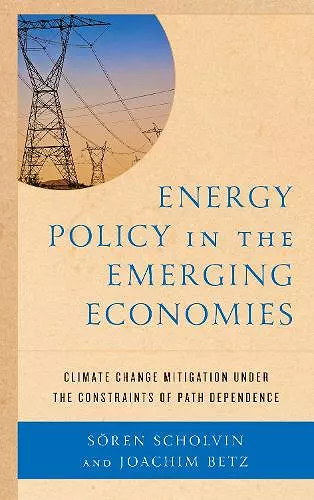Energy Policy in the Emerging Economies
Climate Change Mitigation under the Constraints of Path Dependence
Joachim Betz author Sören Scholvin author
Format:Hardback
Publisher:Lexington Books
Published:10th Apr '19
Currently unavailable, and unfortunately no date known when it will be back

Energy has always been essential to economics and politics. While global energy consumption increases, fossil fuels are depleting. The countries that will be hit hardest by declining energy resources are the emerging economies of the Global South, where the relevance of the industrial sector is only slightly declining (or, indeed, still on the rise) and where governments have subsidized energy consumption for decades. Climate change – a direct outcome of the increasing consumption of fossil fuels – hits the emerging economies hard. Against this backdrop, Energy Policy in the Emerging Economies analyzes energy policy in Brazil, China, India, Indonesia, Mexico, South Africa and South Korea with particular regard to these countries’ contribution to climate change mitigation. Advancing a new approach that expands on energy transition studies and the concept of path dependence, the authors sheds light on material conditions, energy demand and expansion plans, politico-economic constellations, energy-related know-how and climate policy.
“Energy policy in the emerging economies of the Global South has become the crucial determinant of our ability to meet the ambitious climate change mitigation goals committed to in the Paris Agreement. The structural comparative analysis of energy policies and trajectories in seven pivotal emerging economies in this book by energy scholars Scholvin and Betz provides a crucial insight into the highest-stake issue confronting policy-makers in this century. The authors’ prognosis is disquieting, but a critical juncture, triggered by impending climate disaster combined with the immanent risk of fossil fuel-based energy shortages, also provides opportunities for shifting established energy trajectories. This expertly researched study contributes a critical piece of comparative empirical evidence to ongoing debates on the most pressing challenge of our time.” -- Stefan Andreasson, Queen’s University Belfast
ISBN: 9781498534369
Dimensions: 229mm x 160mm x 23mm
Weight: 572g
240 pages